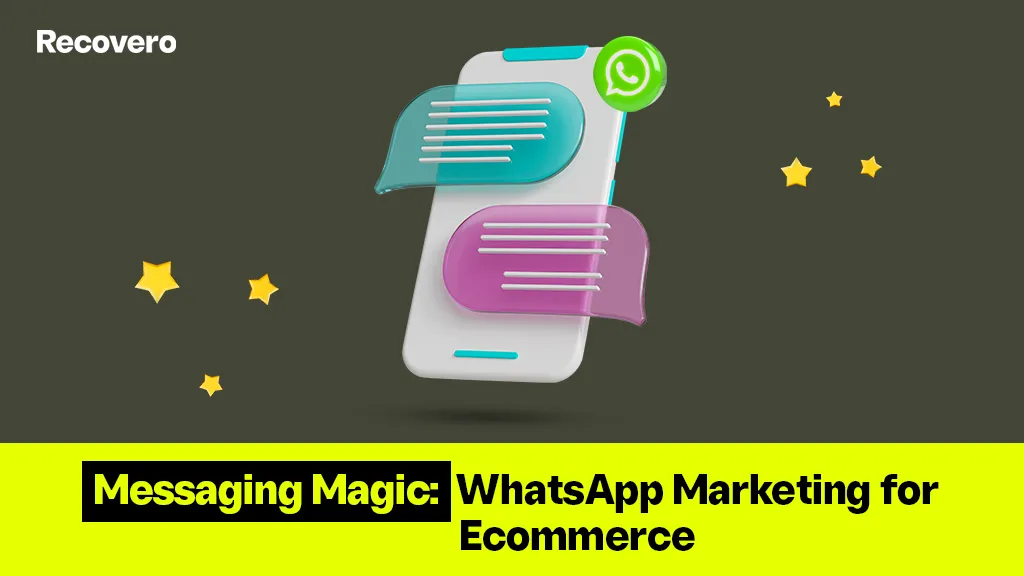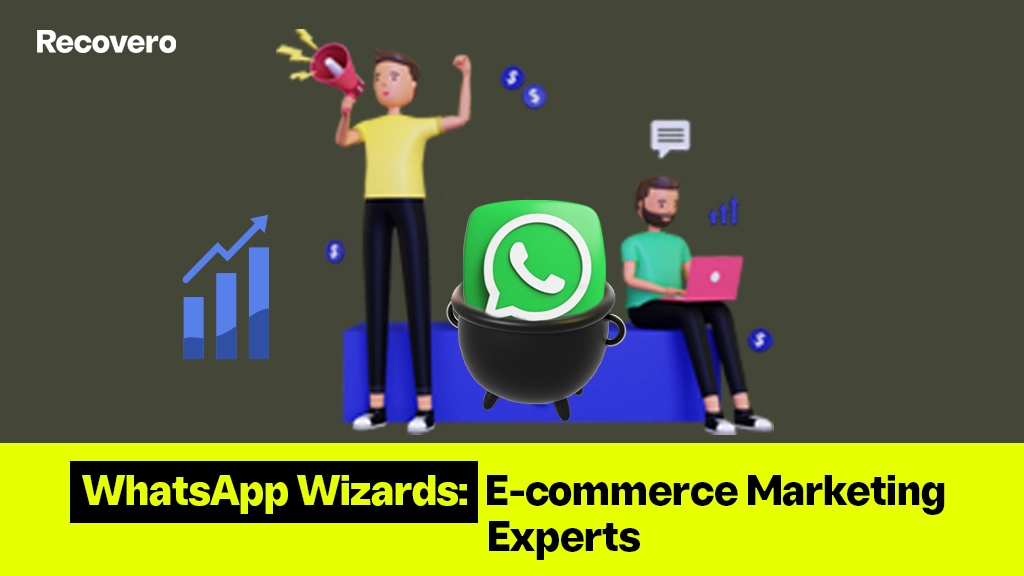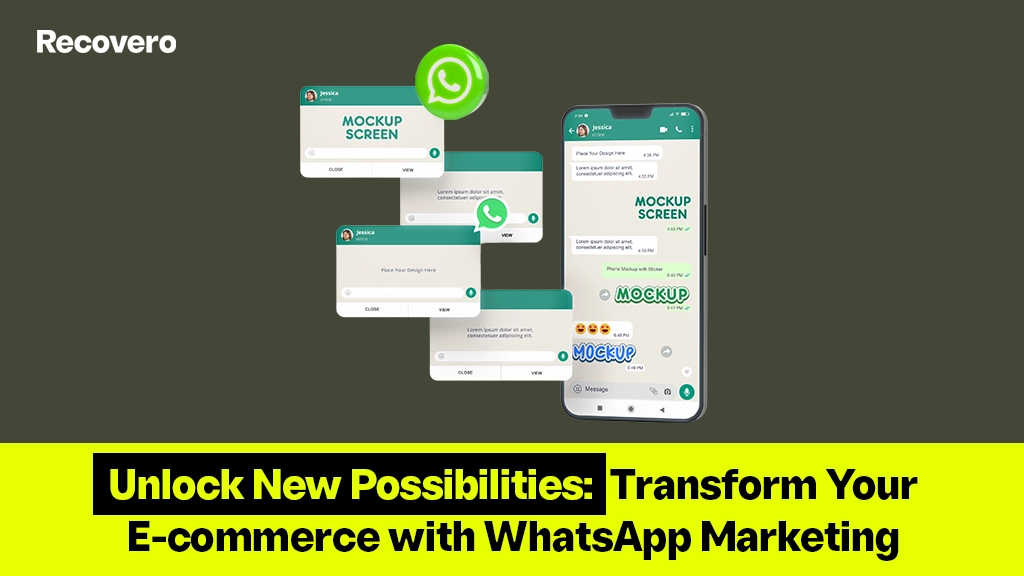SMS vs Email Marketing-which one is best for you! Marketing plays a crucial role in the success of e-commerce businesses. Finding the most effective marketing methods can be challenging in the digital age, where communication channels are abundant. Two popular options that often come to mind are SMS and email marketing. In this article, we will explore the pros and cons of each approach and provide insights to help you determine the best strategy for your e-commerce business.
SMS Marketing
SMS marketing involves sending short, concise text messages directly to your audience’s mobile devices. It has gained popularity due to its effectiveness in reaching customers instantly. Let’s delve deeper into the world of SMS marketing.
Benefits of SMS Marketing
- Direct and immediate communication: SMS marketing lets you communicate with your audience in real-time. Once a message is sent, it usually reaches the recipient within seconds, ensuring your message is delivered promptly.
- High open rates: SMS messages have exceptionally high open rates compared to other marketing channels. People tend to check their text messages more frequently than their emails, making SMS an effective way to grab their attention.
- Increased engagement and conversion rates: SMS messages have higher engagement rates, with customers more likely to interact with them. The concise nature of SMS limits distractions and encourages quick responses, resulting in higher conversion rates.
Strategies for Effective SMS Marketing
- Permission-based approach: Obtaining customer permission before sending SMS messages is crucial. This ensures compliance with privacy regulations and builds trust with your audience.
- Personalization and segmentation: Segment your audience based on their preferences and demographics to deliver targeted and personalized messages. This approach increases the relevance of your content and enhances the overall customer experience.
- Clear call-to-action: Every SMS message should have a clear call-to-action. Whether it’s a limited-time offer or a link to your website, make it easy for recipients to take the desired action.
Limitations and Challenges of SMS Marketing
- Character limitations: SMS messages are typically limited to 160 characters. This constraint requires concise and precise messaging, which may determine the depth of your communication.
- Regulatory compliance and opt-out options: Adhering to SMS marketing regulations, such as obtaining consent and providing opt-out choices, is essential. Failure to comply can lead to legal issues and damage your brand’s reputation.
Email Marketing
Email marketing involves sending targeted messages and promotions to your audience’s email inboxes. It has long been a popular marketing channel due to its versatility and broad reach. Let’s explore the world of email marketing.
Benefits of Email Marketing
- Broad reach and accessibility: Almost everyone has an email address, making email marketing accessible to a large audience. With billions of active email users worldwide, it offers significant reach potential for your e-commerce business.
- Cost-effective and scalable: Email marketing is a cost-effective option compared to traditional marketing channels. It allows you to send messages to many recipients simultaneously, making it highly scalable.
- Opportunities for personalized content: Email marketing enables you to create customised content based on your audience’s preferences and behaviours. You can increase engagement and conversions by segmenting your email list and tailoring your messages.
Strategies for Effective Email Marketing
- Building a quality email list: Focus on growing a quality email list by obtaining permission-based subscriptions. Avoid purchasing email lists, as they often result in low engagement and can damage your sender’s reputation.
- Clear subject lines and email design: Craft attention-grabbing subject lines that entice recipients to open your emails. Additionally, create visually appealing email designs that align with your brand and effectively convey your message.
- A/B testing and analytics: Experiment with different elements of your emails, such as subject lines, content, and call-to-action buttons, using A/B testing. Analyze the results to identify what resonates best with your audience and optimize your future campaigns.
Limitations and Challenges of Email Marketing
- Inbox clutter and competition: Inboxes are often inundated with many emails, making it challenging to stand out. Your email campaigns must be compelling and relevant to capture recipients’ attention.
- Deliverability and spam filters: Email deliverability can be affected by various factors, such as spam filters and blocklisting. To ensure your emails reach the intended recipients’ inboxes, follow email marketing best practices and regularly monitor your sender’s reputation.
SMS vs Email Marketing: Factors to Consider
When deciding between SMS and email marketing for your e-commerce business, consider the following factors:
- Target audience and preferences: Understand your audience’s communication preferences and habits. Some may prefer the immediacy of SMS, while others may prefer the comprehensive content of emails.
- Nature of the message and urgency: Evaluate the content you want to deliver. SMS might be more effective if it requires immediate attention, such as flash sales or limited-time offers. For more detailed information or storytelling, email could be the better choice.
- Communication objectives and goals: Determine your specific marketing goals and how SMS or email marketing aligns with them. Whether it’s increasing brand awareness, driving website traffic, or boosting sales, choose the channel that best supports your objectives.
- Budget and resources available: Consider your budget and available resources when deciding between SMS and email marketing. SMS campaigns may require higher costs due to text message charges. While email marketing can be more cost effective for larger audiences.
Integrating SMS vs Email Marketing
Rather than choosing one channel over the other, consider integrating SMS and email marketing for a comprehensive multichannel approach. Combining the strengths of both channels can maximize your reach and engagement. Here are a few benefits of integrating SMS and email marketing:
- Benefits of combining SMS vs Email Marketing:
- Increased touchpoints with your audience
- Enhanced brand consistency and recognition
- Improved customer engagement and conversions
- Creating a cohesive multichannel marketing strategy:
- Develop a unified brand voice across SMS and email campaigns
- Coordinate messaging to provide a seamless customer experience.
- Utilize automation and scheduling tools to manage both channels effectively.
- Examples of successful integration:
- Sending a follow-up SMS after an email to reinforce the message
- Using SMS to prompt email sign-ups or vice versa
- Sending exclusive SMS offers to email subscribers to drive conversions.
Final Words about SMS vs Email Marketing:
Regarding SMS vs email marketing for your e-commerce business, there is no one-size-fits-all solution. Both channels have their unique advantages and limitations. Understanding your
- business needs,
- target audience,
- and communication goals
are essential in making an informed decision. Consider integrating SMS and email marketing to leverage the strengths of each channel. And to create a cohesive multichannel marketing strategy. By adapting your approach to your audience’s preferences, you can effectively drive engagement, conversions, and ultimately, the success of your e-commerce business.




